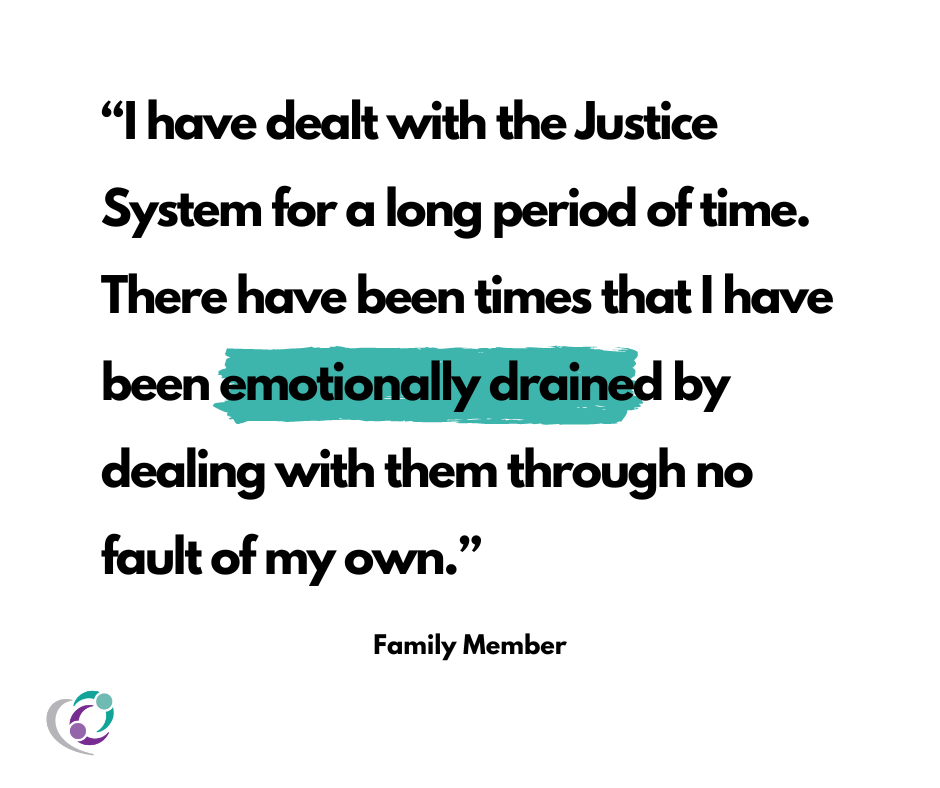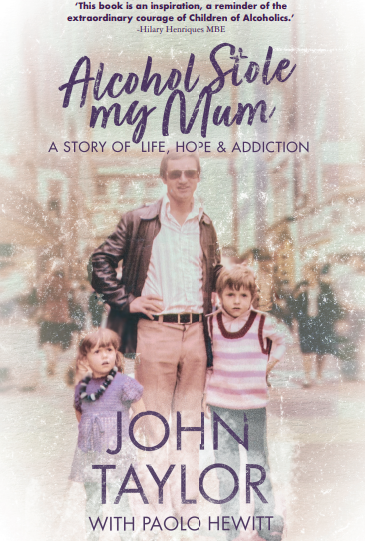We were invited to contribute to the Inverclyde 3rd Sector Community Justice Forum week of engagement activities, focusing on how the Justice System impacts family members affected by alcohol and drugs.
If you know someone who has an alcohol or drug problem, involvement with the Justice System is sadly common. This can negatively affect family members such as having worries of dealers coming to your door to collect debts, worrying that someone will be hurt, attending court as a witness or to give statements, and having the Police at your home are just some of the experience’s family members have shared with us.

Rachel from our Inverclyde Support Service reached out to some family members who attend our service and asked if they would like to share some of their experiences of the Justice System.
“Being in a court is very scary, you feel vulnerable. If possible, you should have someone with you, should it be a family member or someone from Scottish Families.”
“My son has been on and off drugs for 23 years. I have dealt with the Justice System for a long period of time. There have been times that I have been emotionally drained by dealing with them through no fault of my own. It has always been my son that has been arrested or they were doing a welfare check on him and my son wouldn’t open his front door. So, the Police came to my house for me to come and speak to him through the letterbox. But he wouldn’t listen to me so in the end they put his door in, and this is just one story of all the things I have been through with my son.”
“Police officers lifting my daughter after a member of the public called them as she was young, drunk, and had started to walk away with a group of boys. They took her to the cells to sober up as unfortunately I had been meeting with friends in Glasgow. Once I saw the card that was left, I got my dad to take me down to get her.”
“Police officers came to help my daughter after a violent attack on her by an ex-boyfriend.”
“Police officers attending to my daughter when she overdosed or when she experienced a psychotic episode, as a family we didn’t know what to do. They would talk to her and reassure her, ask her if she needed to go to hospital, they could understand and knew how to deal with her. She was never violent with them.”
We then asked families to share with us their views on the Scottish Justice System and the support they give to family members.
“There is support out there, but it is not advertised enough or talked about. People don’t know what is out there to help them. That needs to change!”
“I have mixed feelings about this. There have been times my son has been treated like a piece of shit, and as for the support provided for family members, well from my own experiences some has been good, other times rubbish.”
“At the time I never knew of any support available to families, and I’m still unsure of other organisations that families can turn to.”
If you are affected by someone else’s alcohol or drug use, our support services are here for you whenever you need them. You can contact our Helpline on 08080 10 10 11 / helpline@sfad.org.uk and we also have information and our webchat on our website www.sfad.org.uk.
“My group and facilitator were on hand when I needed to talk, but I found most of my support came from my fellow group members. Amazing people who go out their way to support you and be there with you if you asked them.”






